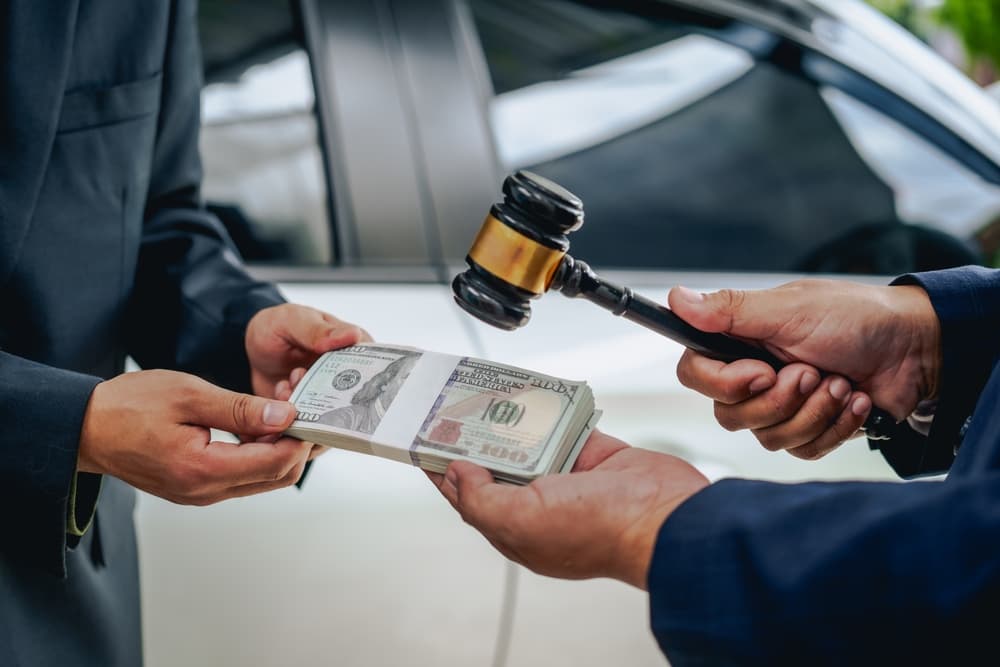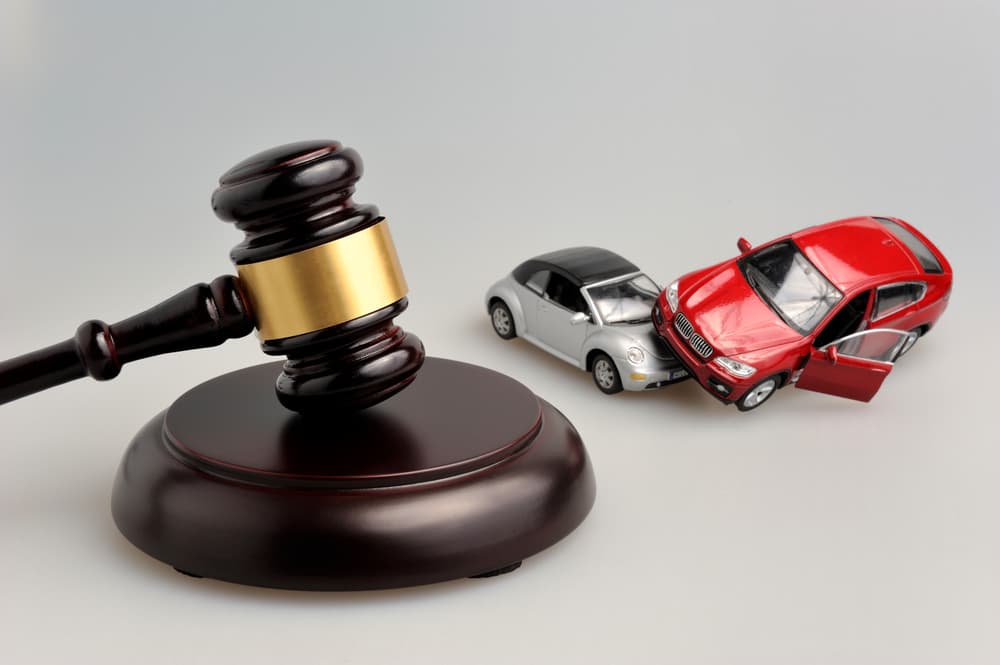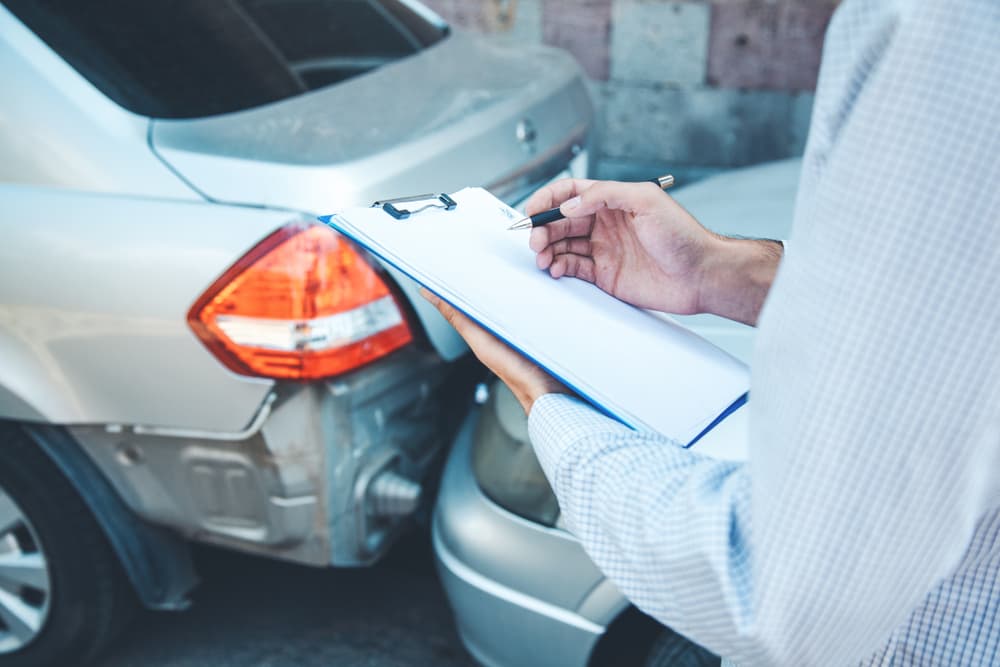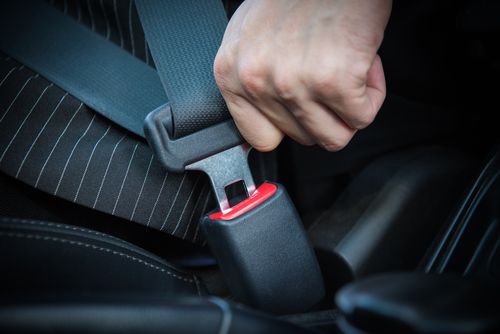A car accident settlement is an agreement between the parties involved in a collision to resolve the legal dispute without going to trial. Typically, this involves the at-fault party (or their insurance company) compensating the injured party for damages resulting from the accident.
A car accident lawyer ensures that settlements cover expenses and losses, including medical bills, lost wages, property damage, and pain and suffering.
The Settlement Process: A Quick Step-by-Step Guide
- Go to the Doctor
- Get treatment for injuries
- Follow up with healthcare providers as needed
- Keep detailed records of all medical care and expenses
- Notify Insurance Companies
- Report the accident to your insurance company
- Let your lawyer speak with the other party’s insurer
- Investigation Phase
- Insurance adjusters assess the accident
- Gather evidence (police reports, medical records, witness statements)
- Determine fault and liability
- Claim Evaluation
- Calculate the total value of damages
- Consider both economic and non-economic losses
- Initial Settlement Offer
- The insurance company presents an initial offer
- This is often lower than the claim’s total value
- Negotiation
- The injured party (often through an attorney) counters the offer
- Back-and-forth discussions to reach a fair settlement
- Settlement Agreement or Litigation
- If you reach an agreement, you finalize a settlement
- If you cannot settle, the case may proceed to court
- Payment and Case Closure
- The insurance company pays out compensation as agreed
- The parties sign legal documents to close the case
Factors Influencing Settlement Amounts

Several factors can affect the value of a car accident settlement:
- Severity of Injuries: More severe injuries typically result in higher settlements due to increased medical costs and long-term impacts.
- Medical Expenses: Your lawyer will include related medical costs, including future anticipated expenses.
- Lost Wages and Earning Capacity: Your lawyer will factor in compensation for time off work and potential future income loss.
- Property Damage: Your lawyer can recover costs to repair or replace damaged vehicles and personal property.
- Pain and Suffering: Your lawyer can recover non-economic damages for physical pain and emotional distress.
- Fault Determination: The degree of fault assigned to each party can affect settlement amounts.
- Insurance Policy Limits: The at-fault party’s insurance coverage can cap potential settlement amounts.
- Strength of Evidence: Clear evidence of fault and damages can lead to higher settlements.
- Jurisdiction: Local laws and typical jury verdicts in the area can influence settlement values.
- Negotiation Skills: Effective representation can significantly improve the final settlement amount.
The Role of Insurance Companies
Insurance companies play a central role in car accident settlements. Their primary goal is to minimize payouts while resolving claims quickly. This can sometimes lead to initial settlement offers for less than what the victim deserves.
You need not accept the first offer. Negotiation is a normal part of the process.
Common Insurance Company Tactics
- Quick Settlement Offers: Insurers may offer a fast settlement before you know the full extent of the injuries.
- Disputing Liability: They might argue about fault or the degree of fault.
- Downplaying Injuries: Adjusters may suggest injuries are less severe than you claim.
- Delay Tactics: Prolonging the process can pressure victims to settle for less.
- Requesting Unnecessary Information: This can slow down the process or find reasons to reduce the claim.
Knowing these tactics can help you navigate negotiations more effectively and avoid settling for less than you deserve.
Car Accident Settlements and Social Media Precautions
Insurance companies and defense attorneys often monitor claimants’ social media accounts for information that could undermine their case.
Here are some essential precautions to take:
- Limit Your Posts: Do not discuss the accident, your injuries, or any aspect of your case on social media platforms.
- Be Cautious with Photos and Check-Ins: Don’t post photos or location check-ins that might contradict your injury claims.
- Review Privacy Settings: Set all your social media accounts to the highest privacy settings, but remember that insurance companies can access your posts through other means.
- Do Not Accept New Friend Requests: Insurance investigators may access your profiles by sending friend requests.
- Ask Friends and Family to Respect Your Privacy: Request that they refrain from posting about you or tagging you in posts during the claims process.
- Don’t Delete Existing Posts: Resist the urge to delete old posts or your entire account, as this could look like tampering with evidence.
The Importance of Legal Representation

Having experienced legal representation can significantly improve the outcome of your car accident settlement.
An attorney who handles car accident cases can:
- Accurately Value Your Claim: Lawyers have the experience to calculate all potential damages, including future costs and non-economic losses.
- Handle Communication: They can deal with insurance companies and other parties, protecting you from potentially damaging statements.
- Gather and Present Evidence: Attorneys know what evidence is needed and how to obtain it effectively.
- Negotiate Skillfully: Lawyers with experience in similar cases can negotiate more effectively for a fair settlement from the other side.
- Provide Legal Assistance: They can guide you through legal processes and help you make informed decisions.
- Represent You in Court: If a fair settlement can’t be reached from the other side, your attorney can take your case to trial.
- Expedite the Process: Lawyers understand the system and can often resolve cases more quickly than individuals handling claims independently.
Calculating Damages in Car Accident Settlements
Damages in car accident cases generally fall into two categories:
Economic Damages
These quantifiable financial losses result from the accident:
- Medical Expenses: Current and future costs related to treating injuries.
- Lost Wages: Income lost due to time off work for recovery.
- Loss of Earning Capacity: Potential future income loss due to long-term or permanent injuries.
- Property Damage: Costs to repair or replace vehicles and other damaged property.
- Out-of-Pocket Expenses: Any other direct costs incurred due to the accident.
Non-Economic Damages
These are more subjective losses that don’t have a direct monetary value:
- Pain and Suffering: Physical pain and discomfort resulting from injuries.
- Emotional Distress: Psychological impact of the accident and injuries.
- Loss of Enjoyment of Life: Inability to participate in previously enjoyed activities.
- Loss of Consortium: Impact on relationships with spouse or family members.
Calculating non-economic damages often involves using methods such as the multiplier method (where economic damages are multiplied by a factor based on the severity of injuries) or the per diem method (assigning a daily rate for pain and suffering).
The Settlement Negotiation Process
Negotiating a car accident settlement is often a back-and-forth process that requires patience and strategy.
Here’s a more detailed look at how this process typically unfolds:
- Initial Demand Letter: Your attorney sends a demand letter to the insurance company, outlining your case and requesting compensation.
- Review and Response: The insurance company usually reviews your demand and responds with a lower counteroffer.
- Counteroffers and Discussions: You may need to go through several rounds of counteroffers and discussions about the case’s strengths and weaknesses.
- Addressing Disputes: Your lawyer will address any disagreements about liability, injury severity, or other factors during negotiations.
- Mediation (if necessary): A neutral third party may facilitate an agreement.
- Final Offer: Eventually, the insurance company will present its best offer.
- Decision Point: You will decide whether to accept the offer or proceed to litigation.
Remember, settlement negotiations can take time, so never rush the process. Patience often leads to better outcomes.
When Settlement Isn’t Possible: Litigation

While most car accident cases resolve through settlements, sometimes litigation becomes necessary.
This might happen if:
- The insurance company denies liability
- The insurance company offers an unreasonably low settlement
- The statute of limitations approaches
If your case goes to trial, the process will involve:
- Filing a Lawsuit: Your attorney files a formal complaint in court.
- Discovery: Both sides exchange information and evidence.
- Depositions: Witnesses and experts provide sworn testimony.
- Pretrial Motions: Legal issues are addressed before trial.
- Trial: Your case is presented before a judge or jury.
- Verdict and Judgment: The court decides on liability and damages.
Even after you file a lawsuit, settlement negotiations can continue, and many cases settle before reaching trial.
The Role of No-Fault Insurance
In some states, no-fault insurance laws affect how car accident settlements work.
Under no-fault systems:
- Your insurance company covers your medical expenses and lost wages up to policy limits, regardless of who caused the accident.
- You can only sue the at-fault driver for additional damages if your injuries meet certain severity thresholds.
- Property damage claims still go through traditional fault-based systems.
Protecting Your Rights After a Car Accident
To ensure the best possible outcome in your car accident settlement:
- Seek Immediate Medical Attention: This protects your health and provides vital documentation.
- Document Everything: Keep detailed records of all accident-related expenses and impacts.
- Be Cautious with Insurance Companies: Avoid giving recorded statements or accepting early offers without legal assistance.
- Don’t Sign Anything: Review all documents with an attorney before signing.
- Be Patient: Rushing to settle can result in inadequate compensation.
- Consider Future Impacts: Ensure any settlement accounts for potential long-term effects of your injuries.
- Consult with an Experienced Attorney: Professional guidance can improve your chances of a fair settlement.
Post-Settlement Considerations
Settling your car accident case is a significant milestone, but it’s not the end of the process.

Here’s what you can expect after you settle:
- Settlement Agreement: You’ll review and sign a final settlement agreement.
- Release of Claims: You’ll typically sign a release waiving your right to future legal action related to this accident.
- Fund Disbursement: The settlement check usually goes to your attorney.
- Confidentiality: Discuss any confidentiality clauses in your settlement agreement with your lawyer.
- Future Medical Care: If your settlement includes compensation for future medical expenses, consider setting aside funds.
- Insurance Impact: Your car insurance rates may increase after an accident. If necessary, consider shopping for new quotes.
- Case Closure: Your attorney will formally close your case file. Keep copies of all important documents for your records.
Remember, your attorney can guide you through this final phase to adequately address all aspects of your settlement.
Schedule Your Free Consultation with a Car Accident Lawyer Today
At Rosenberg & Gluck LLP, we have extensive experience handling car accident cases and negotiating settlements that genuinely reflect our clients’ needs. We’re committed to guiding you through every step of the process, from initial claim to final resolution.
We encourage you to contact our experienced personal injury attorneys for assistance tailored to your specific situation. Let us handle the legal process while you focus on healing. Contact Rosenberg & Gluck LLP today for a free consultation and take the first step toward securing your compensation.









